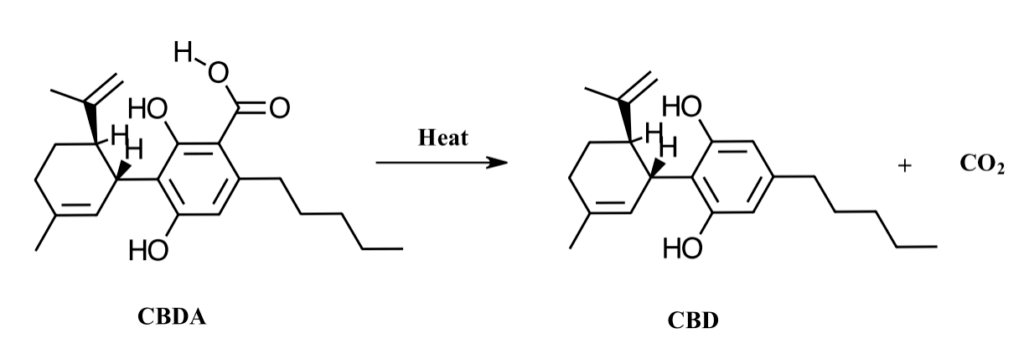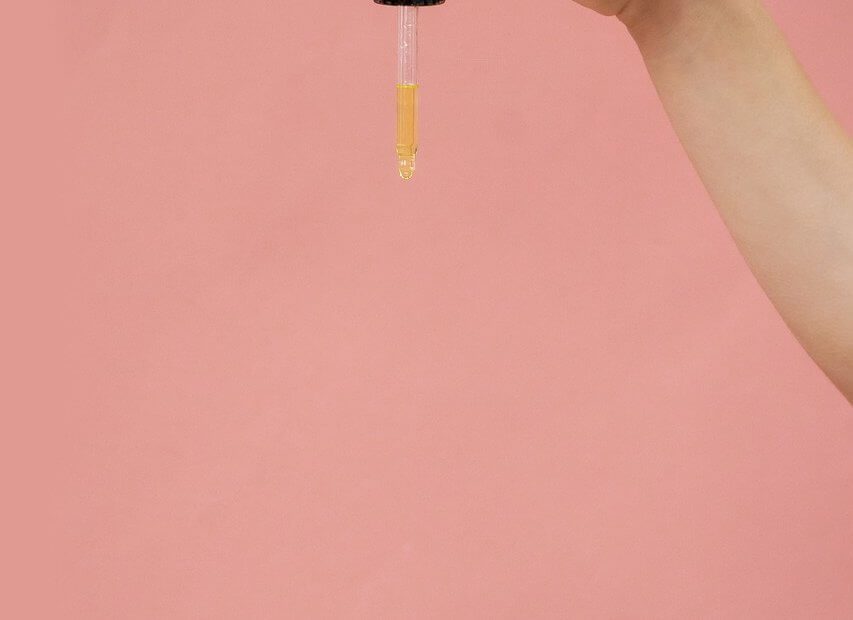Many people have asked, what is the difference between CBDA vs CBD? Let’s address this by first looking at the chemistry of the two molecules. As the abbreviations indicate, the two compounds are closely related. CBDA has a carboxylic acid group on the bis-phenol ring, which makes CBDA much more acidic than CBD (hence the full chemical name cannabidiolic acid). This acidic carboxylate makes CBDA much more polar. More on this later.
The carboxylate on CBDA is unstable, however, and with time, CBDA converts to CBD. When we test hemp samples, it’s pretty easy to determine the age of the biomass by the amount of CBD assayed. The older the material, the more CBD is present.
In processing hemp to make CBD, it is necessary to convert the CBDA. This is done by a process called decarboxylation, in which the crude extract is heated to 80-100 C for several hours until the CBDA is consumed.

Now let’s discuss the properties of the two compounds. Both are commonly encountered as thick oils, but in actuality, the two molecules are crystalline at room temperature. CBD isolate is pure crystalline CBD.
CBDA vs CBD
They enter and effect the body in different ways, however. As mentioned above, CBDA is much more polar than CBD. The body has a way to prevent polar molecules from entering the brain. That’s the blood brain barrier, which is made up of specialized cells that surround the vasculature of the brain. CBDA does not cross the blood brain barrier, so it cannot have effects on the central nervous system. However, being polar conversely increases oral bioavailability (that’s just the amount of a compound that gets absorbed in the stomach and gut). So CBDA can get into your bloodstream easier than CBD, but it can’t reach the brain because of the blood brain barrier.
CBD has the opposite problem: its oral bioavailability is low (and variable), so only a fraction of an oral dose actually makes it into the blood. The absorption can be dramatically increased by taking CBD with food: the food helps carry the CBD through the stomach. Once in the blood, CBD readily crosses into the central nervous system, where it has its well reported effects.
Thus, CBDA acts outside the brain, while CBD can affect both CNS and the body. Once could postulate that CBDA is mainly affecting whole body systems like the immune system. It may be effective for topical applications, but then, it is an acid, and it may be irritating.
There are many grey areas regarding CBDA’s effects, and more research is needed
It will be interesting the follow the science of CBDA. Just one more fascinating cannabinoid. Hopefully this helps you understand CBDA vs CBD, shop USDA certified organic CBD products.
